Space Exploration Science Projects
Space Exploration Science Projects (41 results)
Space exploration is an exciting and wide-ranging area. Getting into space (and back down) is hard, involving rockets and launch vehicles, satellites, spacecraft, re-entry systems, landers and rovers, robots, and orbital mechanics, not to mention hypothetical technologies like space elevators and artificial gravity. To survive and thrive in space, we must understand many additional issues such as human performance in space, the space economy, and the science of astronomical bodies.
Science Fair Project Idea Watching a spacecraft launch is an amazing experience. It is thrilling to see it lift off and escape Earth's gravity. Did you know that it takes a chemical reaction to get a spacecraft into space? Every time you see a one blast off, you are watching chemistry at work. In this chemistry science fair project, you will also get to blast an object into the air. You will not be using the same fuel that NASA uses for the rockets that launch their spacecrafts; instead, you will use two simple… Featured Science Fair Project Idea The enormous task of cleaning up oil spills in oceans and seas has burdened industry, government, and environmentalists for decades. The cleanup is almost always difficult. It involves great amounts of time, resources, and money to remove the oil from the water, and the cleanup is often only partially successful. Today, however, scientists are coming to the rescue, developing a new technique that combines nanotechnology and magnetism. In this science project, you will test the proposed… Science Fair Project Idea How does a parachute work? Do bigger parachutes work better than smaller parachutes? Find out in this science project if the size of the parachute matters. New Science Fair Project Idea Do you have a garden or houseplants? What about living on or a near a farm? How often do you check your plants' leaves for discoloration? What if you could build a robot to check for you, and warn you if your plants are getting sick? In this project you will learn to use a color sensor to identify different colors on leaves, which can give you a warning about problems like pests, diseases, or nutrient deficiency. Get ready to automate your gardening! Science Fair Project Idea Can humans grow food in space? Can we grow plants on the Moon or on a space station? This is an important question to answer as humans look to expand our existence to the Moon, Mars, and beyond. In this science project you will build a clinostat, a device that can simulate microgravity right here on Earth and use it to explore the effects of microgravity on plant growth. Science Fair Project Idea 3... 2... 1... 0— blastoff! In this science project, you will use a bottle rocket launcher to launch your own bottle rocket. You will load it with water and pressurized air, make several launches, and find out what makes your rocket soar the highest. Science Fair Project Idea The Mars Curiosity and Perseverance rovers use scientific instruments, nicknamed ChemCam (Figure 1) and SuperCam respectively, to help them analyze the composition of rocks and soil on Mars. You can learn more about these cameras from the resources in the Bibliography, and more about why scientists want to analyze rocks on Mars from the video on this page. Figure 1. The two main parts of the ChemCam instrument on the Mars Curiosity rover. For a science… New Science Fair Project Idea What kind of milk do you drink in your household? Do you drink 2% dairy milk, whole dairy milk, or plant-based milk like almond milk or soy milk? Have you ever considered why you drink it? As more sustainable and alternative food options become increasingly available, people are interested in the nutritional value of plant-based foods. The US government dietary guidelines state that dairy milk is a good source of protein. Are plant-based milk sources also a good source of protein? In this… Science Fair Project Idea Why do the planets orbit the sun without flying off into space? Do they move in perfect circles or do their orbits take a different shape? And how could you possibly do a science project about any of this—you can't do an experiment with the planets! However, you can build a model of our solar system that demonstrates the concept of gravity, using balls of different sizes to represent the sun and planets. Watch the summary video for an excellent introduction to the model. Think about how… Science Fair Project Idea What keeps a model rocket on course? How can you make sure a model rocket design is stable before you launch it? Find out in this project as you learn about center of mass, center of pressure, and their effect on a rocket's stability. Science Fair Project Idea Rockets are definitively an engineering challenge. These amazing gravity-defying machines have lifted test material, people, and even animals into space. Feel like building one yourself? In this science project, you will transform a water bottle into an aerodynamic bottle rocket with two compartments, one for the fuel and one for a payload. You will then test how well it performs when lifting mass vertically up into the air. Ready, set, soar! Science Fair Project Idea A mass driver uses electromagnetics to launch projectiles. In the future, such a device could launch payloads into space without the use of chemical rockets. This could lead to long-term cost savings when launching large amounts of material into space—for example, to construct a space station. In this project you will design and build your own working model mass driver as you learn some of the engineering principles behind how mass drivers operate. Science Fair Project Idea To be able to live on Mars, humans need breathable air, clean water, and nutritious food. Spacesuits can provide oxygen to breathe, ice on Mars can be a source of water, but how could we get nutritious food? Today's astronauts bring food with them. But a manned trip to Mars would require food that was either successfully grown in space or on Mars, as taking the extra weight of food for such a long time—it takes 6–9 months one way—is just too costly. In this project, you will… |
Explore Our Science Videos
Extract Iron from Cereal– Science Project
We use cookies and those of third party providers to deliver the best possible web experience and to compile statistics.
By continuing and using the site, including the landing page, you agree to our Privacy Policy and Terms of Use.
By continuing and using the site, including the landing page, you agree to our Privacy Policy and Terms of Use.
Free science fair projects.

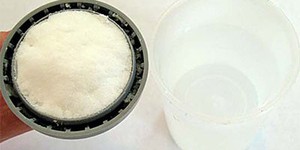

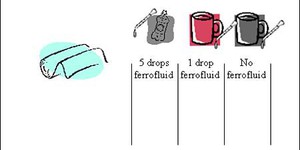

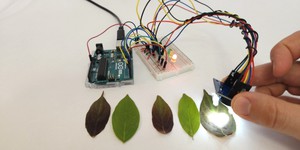
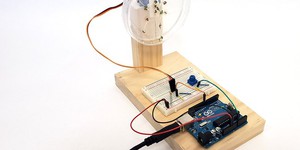
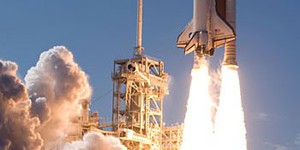
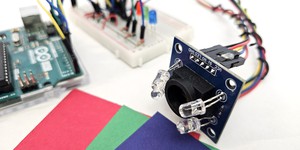

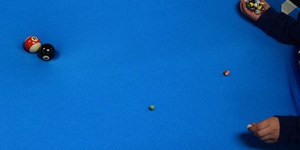
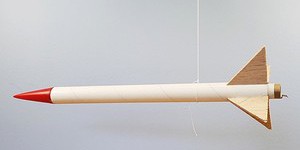
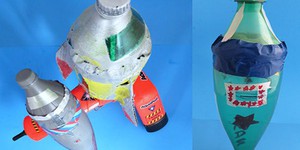
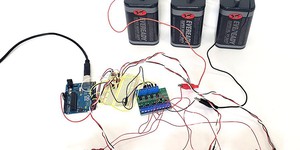
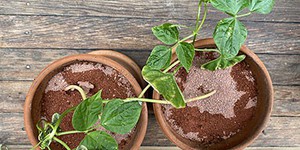




Comments
Post a Comment